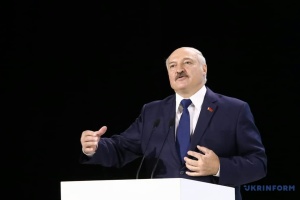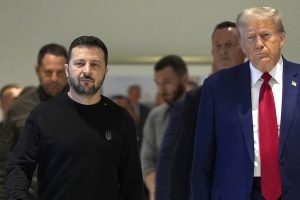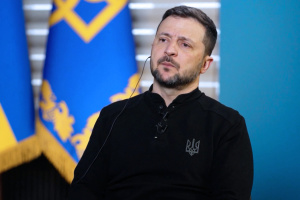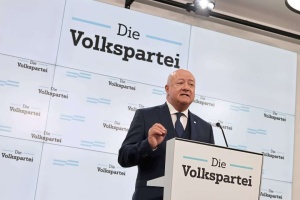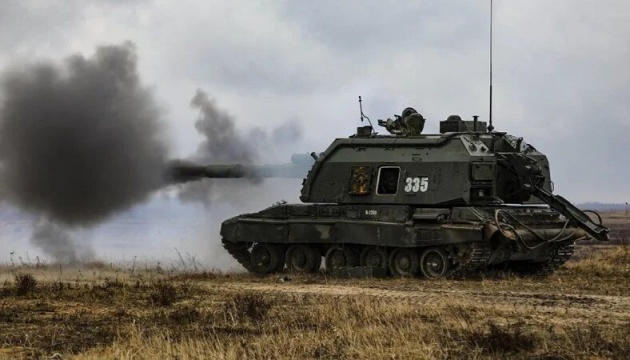
On chemical weapons and distinctive smell of Russian disinformation
The latest security crisis in Eastern Europe revolves around a single question: will Putin resort to a large-scale invasion of Ukraine? No one, perhaps not even the Kremlin chief himself, is ready to give an unequivocal answer.
Since late October, Russia has been doing its best to prove it is able to defeat the Ukrainian Army in the near future. Under the formal pretext of exercises, more than 100,000-strong strike groupings have been amassed near Ukraine’s borders. At the same time, the threat looms from several directions: traditionally from the east and the ORDLO (occupied parts of Donbas), the sea, and Crimea, and recently also from Belarus, which is rapidly giving up to Russia what’s left of its sovereignty.
The invasion bluff looks like blackmail to impose Russia’s agenda: a hypothetical "new Yalta", i.e. the distribution of spheres of influence in Europe, as happened at the end of World War II. However, diplomatic blackmail can also be a smokescreen for preparing for a real invasion of resilient Ukraine.
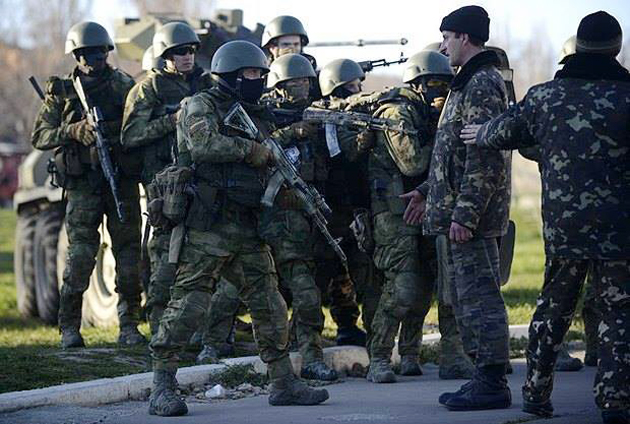
Since 2014, Ukrainians have become accustomed to living in conditions of permanent military and political confrontation with Russia. The tensions that have arisen this fall made them recall their anxieties of 2015, 2018, and the spring months of 2021. However, the determination to resist never wavered. In the end, most experts agreed that the actual combat use of the Russian armada assembled at our borders remains unlikely.
Simple logic and experience of recent years suggest that a significant military advantage is not enough for Russia to escalate. However, Ukraine is not inclined to create a casus belli – a formal reason for an act of aggression.
Therefore Russia is inspiring such pretexts by itself.
On December 1, Russian media outlets spread a fake allegation claiming that a group of peaceful migrants crossing the Belarusian-Ukrainian border had been shot dead by either Ukrainian border guards or military. In a little over a week, the Russians were preparing to "defend" the Kerch Strait from the Ukrainian Navy vessel Donbas, which did not really intend (and neither was it able) to break through from the Sea of Azov to the Black Sea.
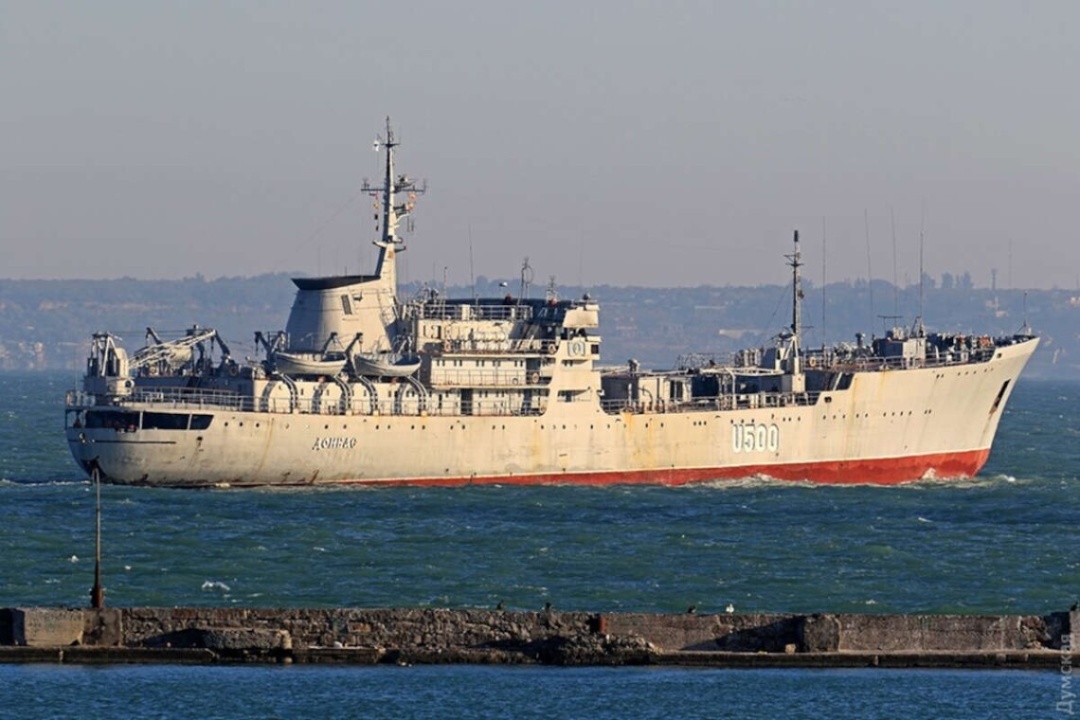
Ukraine Navy's Donbas vessel
And then it was time for “incidents” in the Russia-occupied Donbas. On December 21, at an extended meeting of the board of the Russian Ministry of Defense, chaired by Vladimir Putin, the head of the ministry, Sergey Shoigu, complained about the military beef-up of Ukraine, to which NATO Allies have been contributing. The Minister saw a threat in the supply of helicopters, combat drones, and anti-tank guided missile systems to Ukraine, but among other things, he made the following surprising statement:
“We have established the presence of over 120 employees of American private military companies in the localities of Avdiyivka and Pryazovske in Donetsk region. They are equipping firing positions in residential buildings and critical infrastructure facilities, preparing Ukrainian special operations forces and radical armed groups for active hostilities. Tanks with an unidentified chemical agent were delivered to the cities of Avdiyivka and Krasnyi Lyman to carry out provocations. The number of shellings of residential neighborhoods in Donbas and positions of the People's Militia of the LPR and DPR by the Ukrainian military is not decreasing.”
Russian disinformation channels instantly turned "tanks with an unidentified chemical agent" into "proven facts" of chemical weapons available to Kyiv and Ukraine’s alleged readiness to actually use them. Allegedly, this was supposed to happen with the help of American mercenaries Shoigu has mentioned.
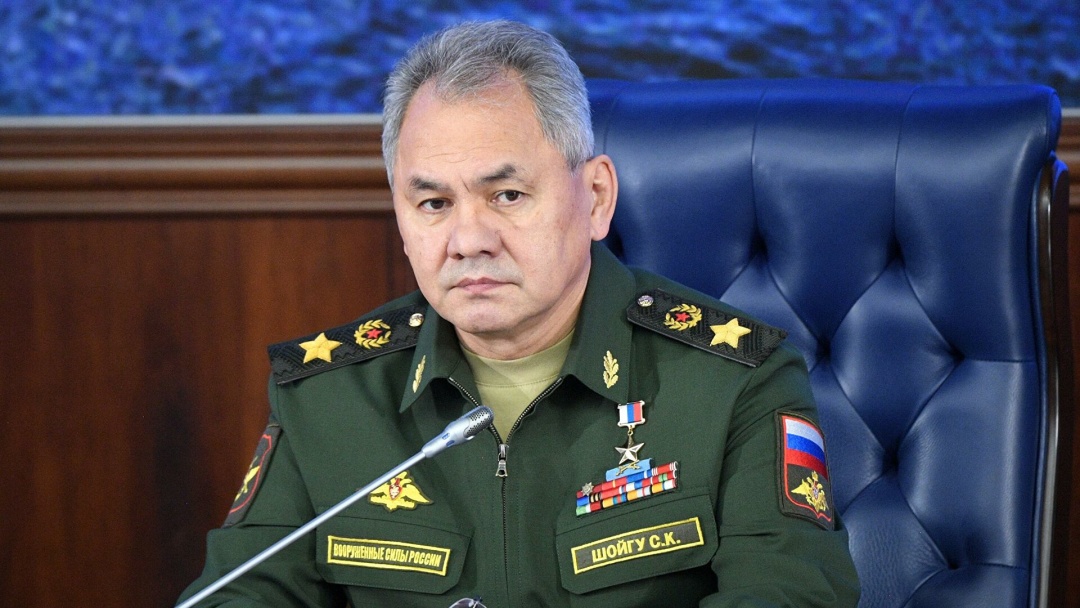
Sergey Shoigu
Each of these fake stories – about the gunned down refugees, the naval provocation, and the American mercenaries carrying chemical weapons – may open a gateway to hell just for a moment. And then there’s a single person who would decide, whether or not to let the demons of war through this gate. It seems that producing such “news” pieces is the same routine for the Kremlin's propaganda machine as it is for Russian tanks to take part in live-fire drills at training grounds near our borders.
Does Ukraine need to respond to Russia's accusations, which may justify its aggressive moves? Yes, we have to do it no matter how absurd the allegations. If Moscow chooses to pose as a victim or peacekeeper to set up an invasion, we are forced to expose them.
So, let’s analyze the statement in detail.
Firstly, it is the Russian occupation forces in the ORDLO who systemically violate the ceasefire on the line of contact. Every day, the Ukrainian side records five to 10 cases of enemy fire, of which 30% involve 100-mm weaponry, proscribed by the Minsk agreements.
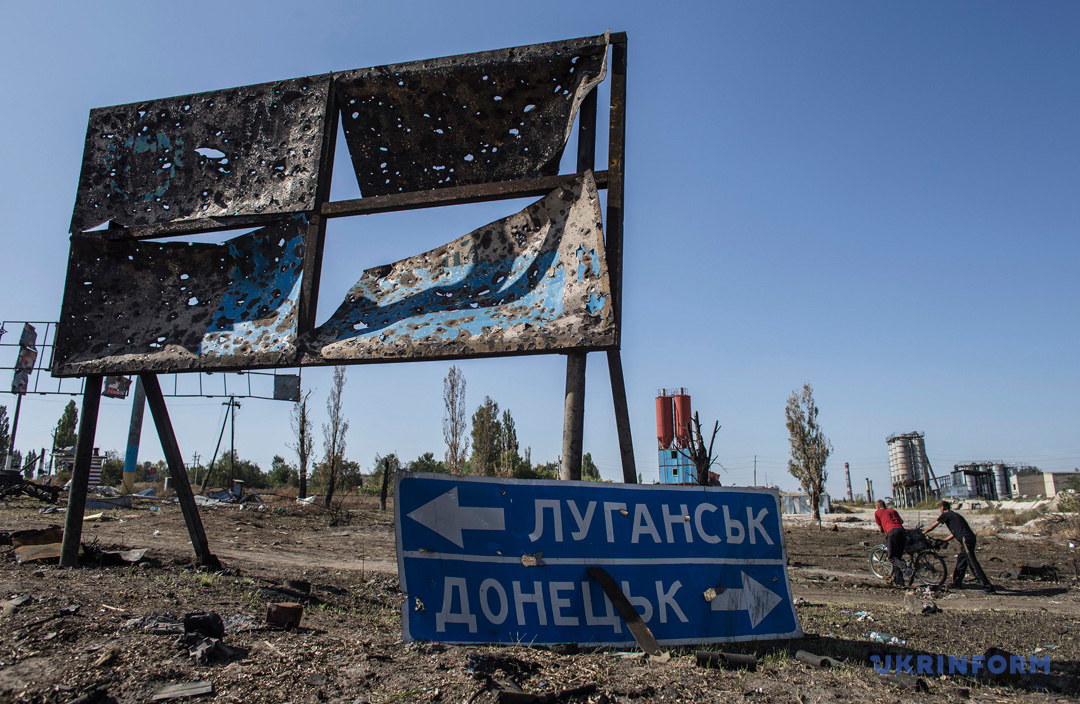
Although Moscow does not recognize itself as a party to the conflict in Donbas, it interprets the agreements reached in Minsk as legitimizing its right to intervene in favor of the so-called “republics.” On December 27, Russian Foreign Minister Sergei Lavrov once again threatened Ukraine over the alleged violations of the Minsk agreements. Such unsubstantiated accusations of Ukraine by the Russian leadership may be enough to justify a new round of escalation.
Secondly, we do not need services of private military companies - American or other. Ukraine's cooperation with the United States is pursued at the official bilateral level and is carried out openly, within the framework of existing treaties, national legislation, and international law. This also applies to the participation of the United States military in joint exercises in Ukraine.
The mention of private military contractors is nothing but projection on the United States of similar accusations that Washington has brought up against Moscow in connection with the activities of the infamous “Wagner” PMC, including in Donbas.
Third, Ukraine complies with its obligations under the Convention on the Prohibition of the Development, Production, Stockpiling and Use of Chemical Weapons and on their Destruction. Our country has never had chemical weapons, which it officially declared within the Organization for the Prohibition of Chemical Weapons.
Russian fake news about "tanks with an unknown chemical agent" may serve as an excuse for the attempts to engage targets in the territory controlled by Ukraine. Here, too, we are dealing with a projection of another situation, or even retaliation. We should recall that on April 7, 2017, the United States launched a strike on Syria’s Shairat airfield, in response to the use of sarin (combat poison) bombs by Putin’s ally Bashar al-Assad.

On December 24, the international intelligence community InformNapalm published the Report on information countermeasures aimed at informing the population of Ukraine and residents of the territories of the Donbas temporarily controlled by Ukraine for 2021, which may be a document for internal use drawn up by the so-called “ministry of information of the DPR.”
In the paper, propagandists admit they are the ones behind the fake story involving chemical weapons. The most recent of the 54 “information subversions” in 2021, on which Donetsk Goebbelses report to their Russian handlers, is “preparation for the publication (once a special order is issued) of disinformation and staged photographs on the shipment of chemical weapons to the area near the contact line by Ukrainian military servicemen together with American and NATO specialists.”
The media attack carried out through Russia’s Defense Minister Shoigu, which is already being further spread by Russian propaganda mouthpieces as usual, is likely to fade away pretty soon and vanish from the agenda as rapidly as all earlier media products given their limited shelf life. It will have a chance for a longer use only under one condition – if it is actually used as justification for further aggression.
Center for Strategic Communication and Information Security

